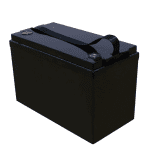Artificial intelligence is a field that has emerged this year. We can see that it is integrating with many industries and even replacing many jobs and things. In the ever-developing area of energy storage, the seamless integration of AI and IoT provides unlimited power. These two technology giants are working together in perfect harmony to redefine the way we manage 48V lithium-ion battery energy storage. This article shares how AI and IoT are integrated with energy storage 48V lithium-ion battery systems.
The powerful integration of AI and the IoT
The synergy of artificial intelligence and the Internet of Things marks a massive shift in energy storage. On the one hand, AI injects intelligent decision-making capabilities into the equation. IoT, on the other hand, connects devices and collects real-time data. This powerful combination reimagines how we approach energy storage, 48V lithium-ion batteries, and their management.
It’s a synergy that enhances one’s strengths. Artificial intelligence, with its ability to process large amounts of data and make real-time decisions, thrives on the data provided by the Internet of Things. IoT relies on artificial intelligence to interpret this data and make actionable recommendations. They are optimizing energy storage 48V lithium-ion battery systems to make them more efficient, sustainable, and cost-effective.
IoT real-time energy storage 48V lithium-ion battery monitoring
IoT integration brings incredible benefits – real-time monitoring of 48V lithium-ion batteries. Sensors discreetly embedded in these batteries continuously transmit a rich data stream, including temperature, charge level, and performance. This real-time data feed is a valuable asset, ensuring the battery is running optimally while acting as an early warning system for any potential issues that may escalate. Through the Internet of Things, a constant stream of data can provide real-time insights into the performance of these batteries. The data includes temperature trends, voltage levels, and energy consumption patterns.

Artificial Intelligence-Powered Predictive Maintenance
AI algorithms can scrutinize data collected by IoT sensors, and this powerful analytics enables predictive maintenance of energy storage 48V lithium-ion batteries. It allows us to anticipate issues that must be addressed in advance. This foresight will help us to proactively address these issues, resulting in significant cost savings and longer battery life. Artificial intelligence learns from the vast data the Internet of Things provides. Over time, AI systems will become experts at identifying patterns and anomalies in battery performance. This approach to predictive maintenance can save costs and minimize downtime and the potential for unexpected failures.
AI optimizes energy storage 48V lithium-ion battery efficiency!
The AI-driven energy management system uses historical data and real-time insights to optimize the charge and discharge cycles of energy storage 48V lithium-ion batteries. This fine-tuning can improve energy efficiency, reduce waste, and ultimately reduce operating costs. Artificial intelligence optimizes battery charge and discharge cycles to ensure the most efficient consumption and storage of energy. By analyzing historical data, AI can determine the best time to charge the battery and the most cost-effective energy source. Additionally, AI can adjust the battery’s discharge rate to meet the facility’s energy needs, ensuring energy is used efficiently. This optimization reduces waste and lowers operating costs, making energy storage more economical and environmentally friendly.

Grid integration and energy demand forecasting
Artificial intelligence isn’t just about batteries; It also enhances energy grid management. The algorithm predicts energy consumption patterns with extremely high accuracy. They can then efficiently manage the stored energy during peak demand periods. This significantly benefits residential and commercial users, reducing their reliance on the grid during expensive peak times. AI plays a vital role in integrating energy storage 48V lithium-ion batteries into the broader energy network. These algorithms can predict energy consumption patterns at different times of the day, week, and even seasons. This information allows the energy management system to make real-time adjustments to optimize energy use.
Final summary
Integrating artificial intelligence and IoT in energy storage 48V lithium-ion battery management represents a paradigm shift in energy storage solutions. It increases efficiency, extends battery life, optimizes grid integration, and encourages the use of renewable energy. We are on the edge of an era where intelligent, connected energy management will become the norm. We can foresee even more sophisticated and sustainable energy storage solutions as artificial intelligence and the Internet of Things develop. If you also want to enter this life, you might as well go to our website to learn more.










